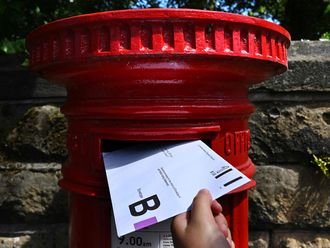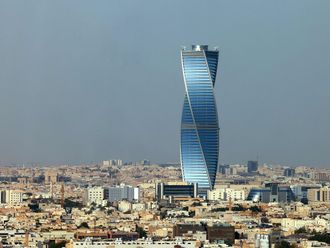
Athens: Greek customs officials walked off the job Tuesday for a three-day strike to protest government austerity measures designed to pull the country out of a debt crisis that has shaken the entire eurozone.
The strike, which will hamper imports and exports until Thursday, came a day after European finance ministers told Greece to prepare even tougher spending cuts and new taxes if current cutbacks don't reduce its massive deficit from 12.7 per cent of economic output to 8.7 per cent this year. Athens has until March 16 to report back to the European Union on its progress.
But the measures that the country's new Socialist government has announced so far - including higher taxes, increases in the average retirement age, a salary and hiring freeze for the public sector and cuts in stipends and bonuses - have already caused a backlash from trade unions.
Last week, civil servants walked off the job for 24 hours - although protest marches in Athens and Greece's second largest city of Thessaloniki were poorly attended. The country's two largest umbrella unions have declared a general strike for next Wednesday, while fuel truck drivers are also threatening to strike this week.
EU countries that use the common euro currency have pledged to help Greece if it can't repay its debts - but want Athens to make big spending cuts first. They are taking action because fears of a Greek default could spark a wider European debt crisis, threatening governments' ability to borrow money.
If Greece shows it isn't on course to meet its targets, the finance ministers of the other 15 eurozone countries would vote on whether tougher action is needed and would impose extra measures on Greece, said Luxembourg Prime Minister Jean-Claude Juncker, who led Monday's talks in Brussels.
The details of new spending cuts would be agreed with the European Commission and would focus on raising value-added tax and energy taxes, setting new excise duties on luxury goods - including private cars - and new cuts to capital expenditure.
Market worries of a default have hiked the cost of Greek government borrowing in recent months and caused the euro to slide to a near nine-month low against the dollar.
Greece has not asked for a bailout and insists it doesn't need one. But eurozone nations have said they would step in "to safeguard the stability of the eurozone" if that became necessary, although no details of how that would be done have been made public.
On Monday, Finance Minister George Papaconstantinou called on eurozone nations to detail how a potential bailout would work, saying this would "stop markets from attacking Greece."












